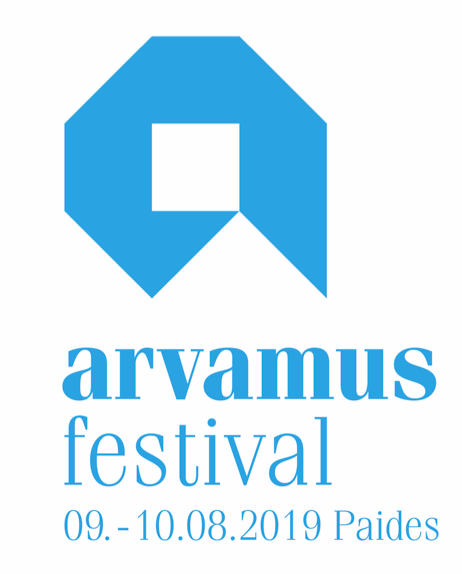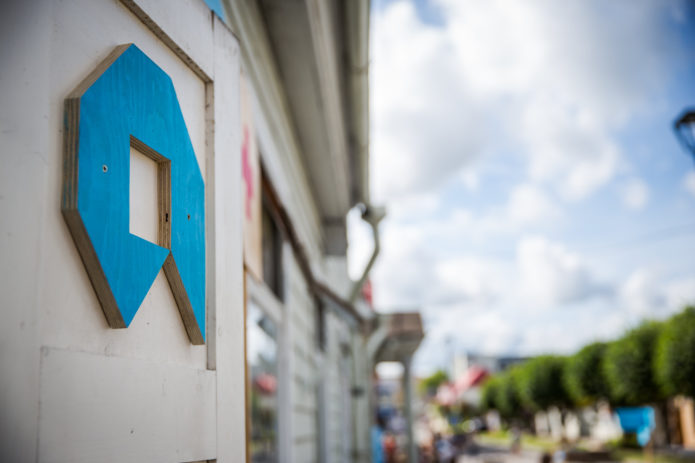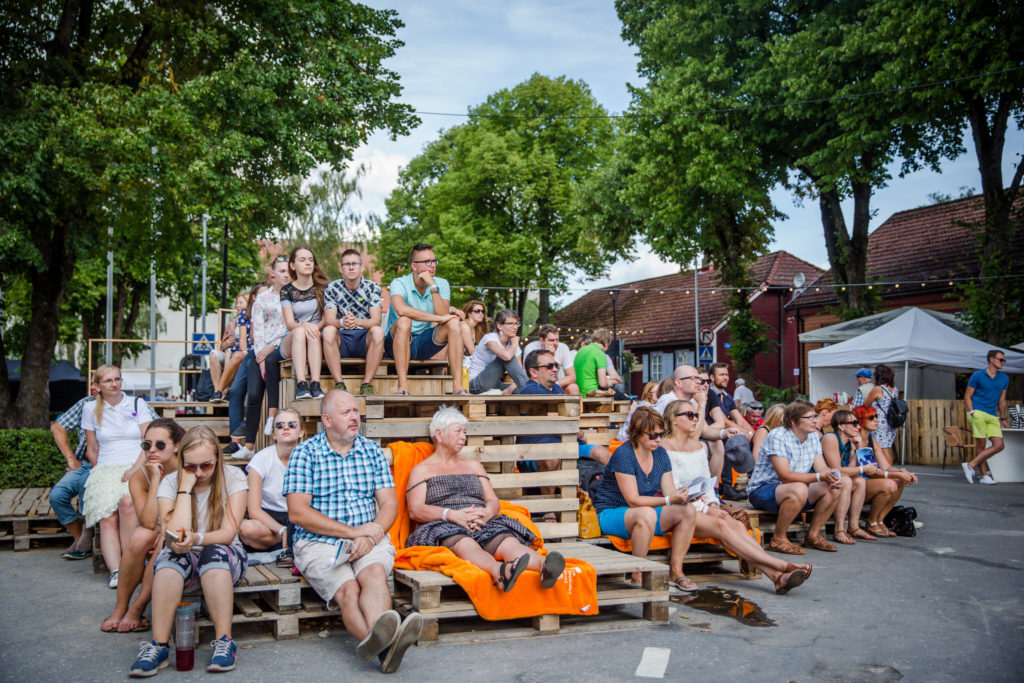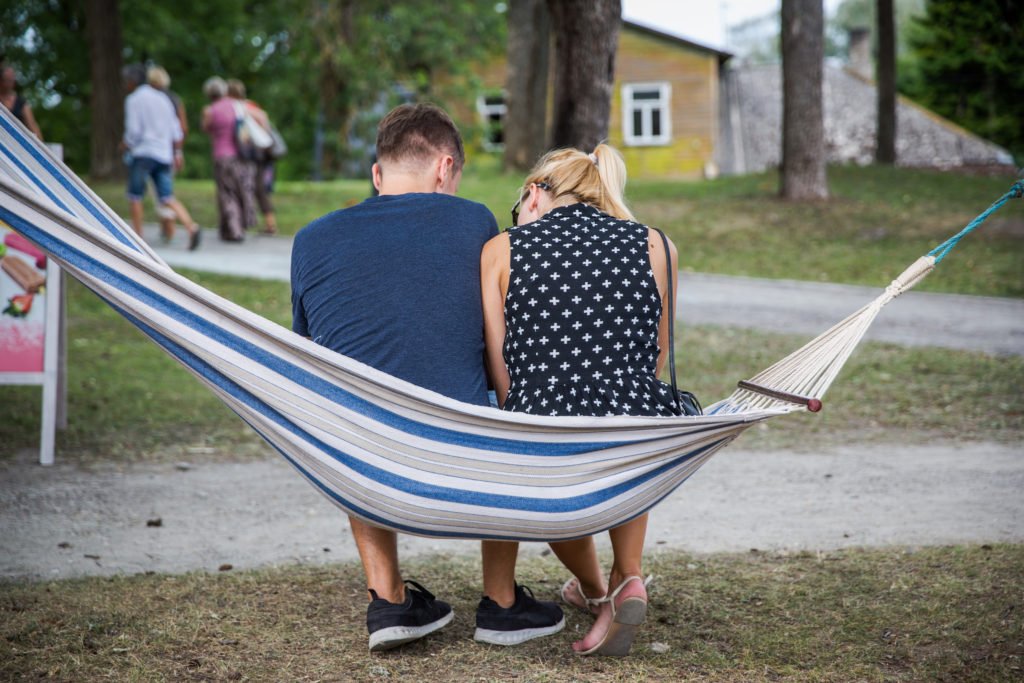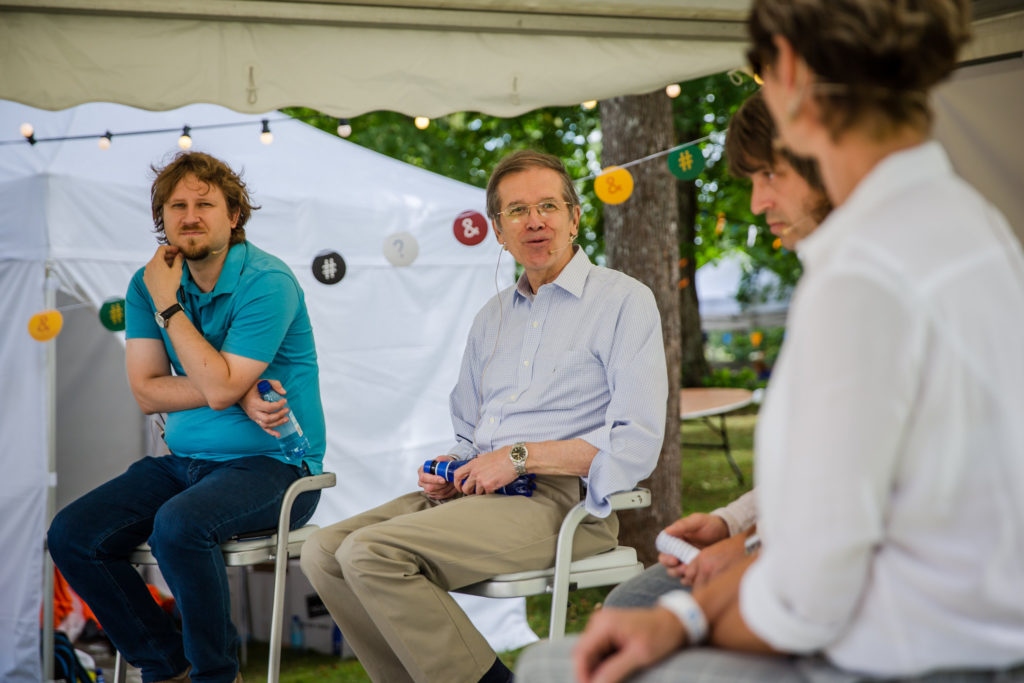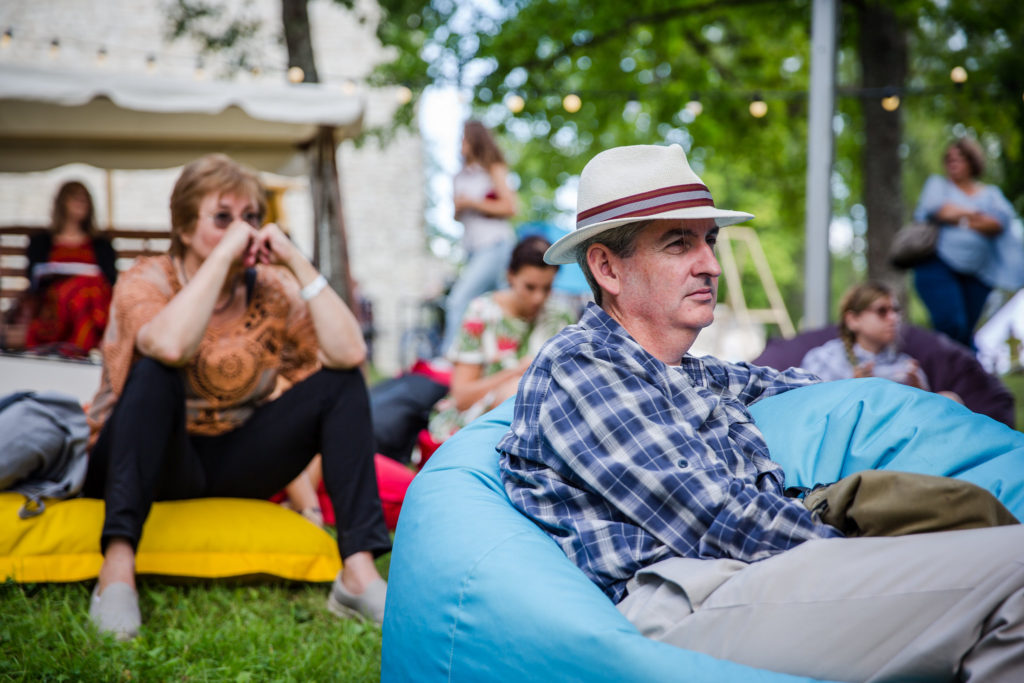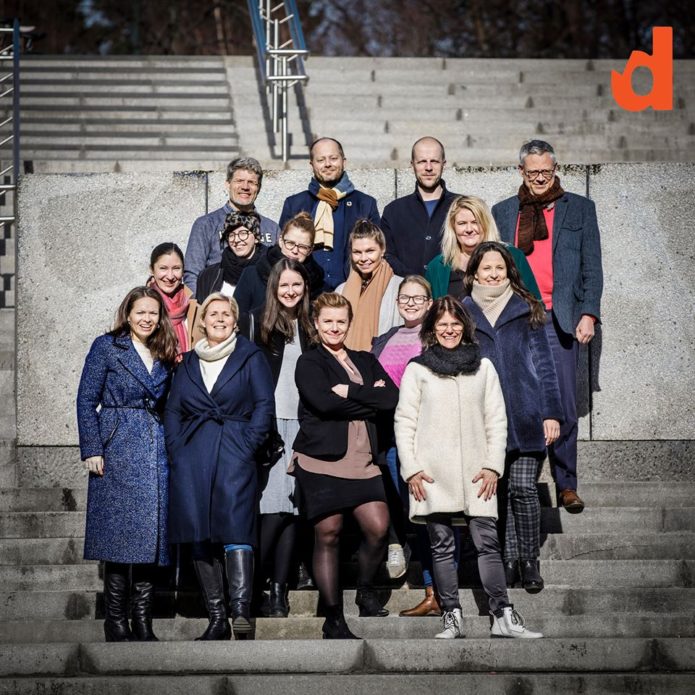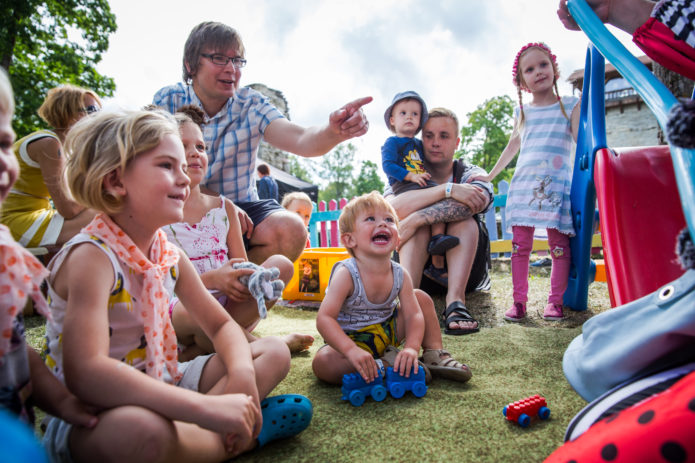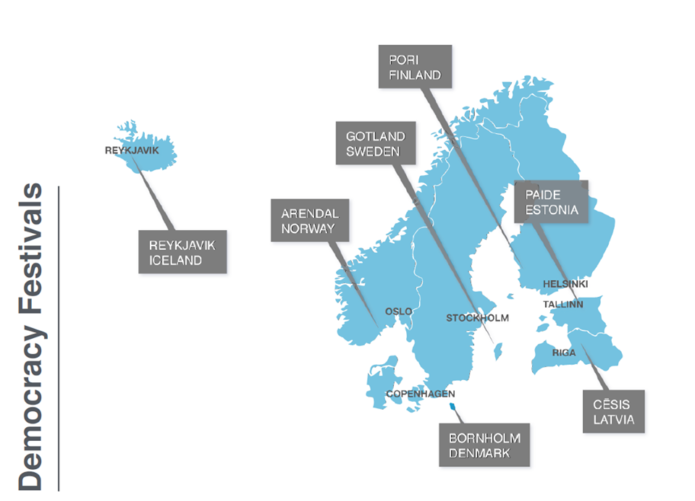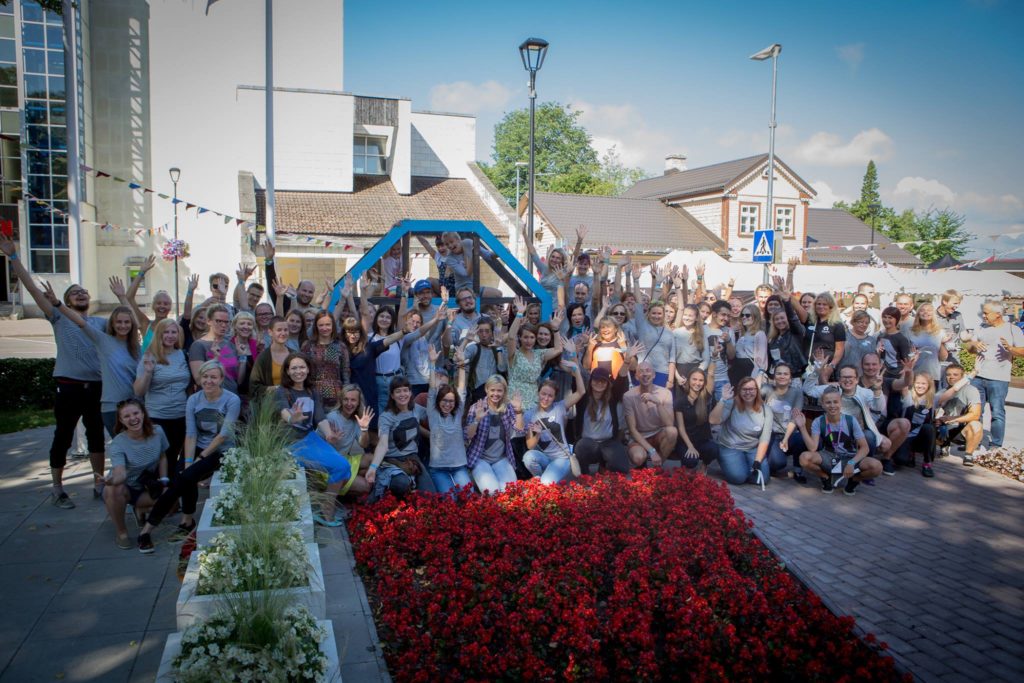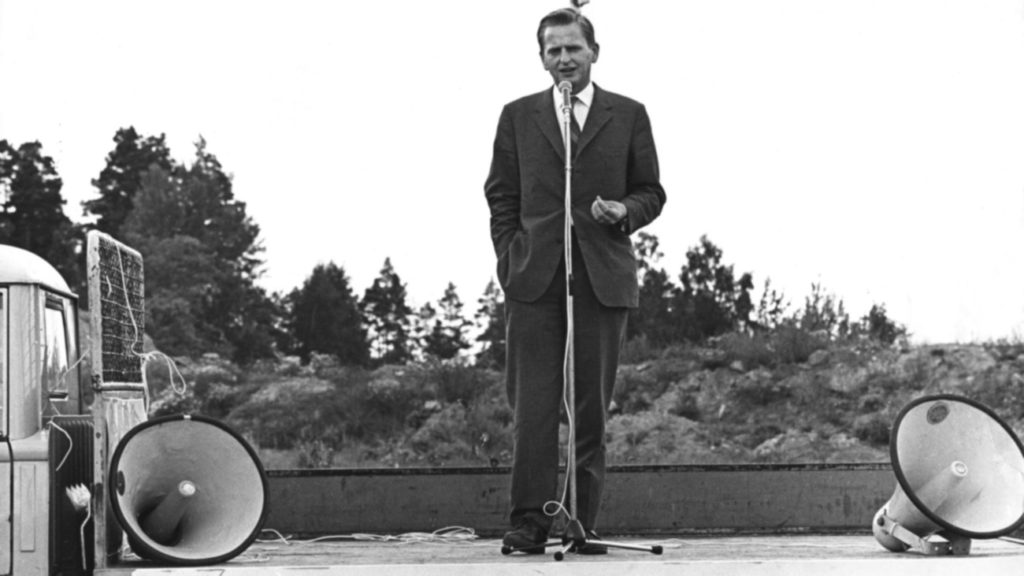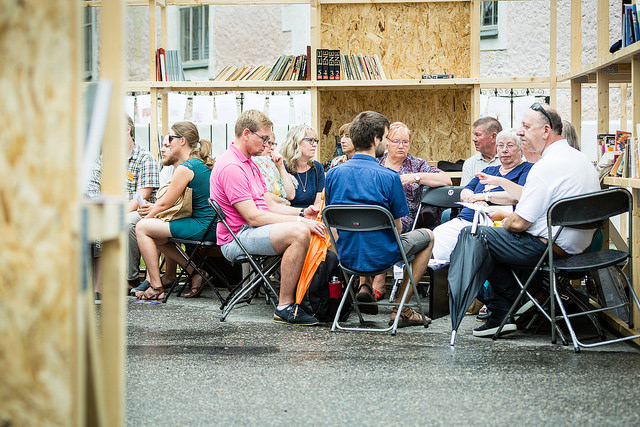This year’s Opinion Festival will be taking place on the 9-10th of August in its traditional place right in the heart of Estonia – the lovely town of Paide. The main theme of the Opinion Festival 2019 is FUTURE.
If you are an opinionated, forward-looking, debate-seeking foreigner that does not yet speak the Estonian language, then fear not, we have got you covered. During the two days, there will be plenty of discussions taking place in English at Arvamusfestival to accommodate your need to speak up and think freely. Everything from sustainability to politics, with a side-dish of the economy. Schoolchildren won’t be left out either – there will be a discussion about the youth of Europe, as well as one on the topic of interpersonal skills. Take a look for yourself at the list below. The festival is free for visitors.
Friday, 9th of August
12.00-13.30 Trash Heroes – an artistic initiative for a better city
Trash Heroes combines art and environmental awareness with having fun together. They bring up values essential to a better future through dance, music, green energy, recycling, and environmentally-friendly vehicles. The plan is simple: 1. cruising around with custom-made cargo bikes, 2. cleaning up areas to make them better for dancing, 3. dancing, 4. moving on to next destination. The cargo bikes have percussions, DJ-sets and sound systems, all powered by solar energy. Ride on! Participants: Antti Lahti (artistic director of Time of Dance Festival in Jyväskylä), Panu Varstala (founding member of Apinatarha dance collective). Moderator Karoliina Korpilahti.
13.30-14.45 Diversity – a tool for sustainable success
Discussion is about the benefits of diversity for different types of organizations. Diverse workforce brings along open-mindedness and helps to grasp all potential business opportunities. Why diversity brings various benefits? Are Nordic and Baltic companies realizing this competitive edge? Participants: Piia Karhu (Finnair), Anu Realo (Tartu Ülikool), Kaire Tero (Rimi Eesti Food AS). Moderator Annika Arras (Miltton New Nordics).
14.00-15.30 The Future of Nato
2019 marks the 70th Anniversary of the North Atlantic Alliance and 15 years of Estonia’s membership in NATO. It’s a good moment to look at current and future challenges to the Alliance. What are the key issues, risks and threats the Alliance is facing in the future? How is the nature of threats evolving and what should be our response? The discussion is organised in cooperation with the Friedrich Ebert Foundation and the Embassy of Germany in Estonia. Participants: Marko Mihkelson (Chairman of the Council of EATA), Colonel Paul Clayton (eFP commander of the British Army in Estonia), Anu Eslas (Member of Estonian Atlantic Treaty Association and long-term representative of Estonia at the NATO Industrial Advisory Group), Kalev Stoicescu (International Centre for Defence and Security). Moderator Taavi Toom.
Video: British Embassy Tallinn
15.00-16.15 What is the future-proof economic model?
Consumption is the fuel for economy – how will the business do in the post-growth economy? Is circular and bioeconomy the right vehicle? Is it possible really to detach growth from resource consumption? Some socio-economic studies refer to new alternatives. These are crucial issues for politicians, social scientists, economists and entrepreneurs. Participants Kristiina Esop (Vastutustundliku Ettevõtluse Foorum), Mika Pantzar (finnish economist), Mikael Malmaeus (economist and an expert of environment politicst) ja Tea Danilov (Arenguseire Keskus). Moderator Kristi Saare.
16.00-17.30 The Youth of Europe – is what we want, what we get? Expectations and reality
Possible decline of liberal values and blurred landscape of political system, rapid development of technology, consequences of climate change, China as a global player are but a few challenges and questions the millennials have to face. How do they imagine their future and what can actually be done about it in the next 15-20 years time? We’ll ask both young idealists and experienced realists. Participants: Luukas Ilves, expert on technology and cyber issues, former Deputy Director and Senior Fellow at Brussels-based think tank and policy network the Lisbon Council; Klen Jäärats, Director for European Union Affairs at Estonian Government Office; Kristen Aigro from Estonian Roundtable for Development Cooperation and former board member of European Youth Council and Gustaf Göthberg, Member of the Swedish Moderate Party. Moderator Johannes Tralla. The debate at the Estonian Opinion Festival is supported by European Commission Europe for Citizens programme and is part of the EU Solutions Lab project. Similar debates take also place in Latvia and Lithuania.
18.00-19.30 How to define relationships?
There are different types of relationships. How do you even know whether monogamy, polygamy, relationship anarchy, polyamory, polyandry or any other type would suit you? In the debate we will discuss different relationship types, hear stories from anonymous authors and discuss about when would it make sense to talk to your partner(s) about your expectations for your roles and goals. Participants: everyone is welcome! Moderator Heli Aomets.
18.00-19.30 European Citizens’ Initiative: Participatory democracy for citizen-powered Europe
How much power do you have? With the European Citizens’ Initiative, you can shape European policy. Join us to find out more about this unique tool allowing you to suggest concrete legal changes in any field where the European Commission has power to propose legislation. We will discuss the importance of participatory democracy as well as give you valuable information on the European Citizens’ Initiative. Come and take the initiative with us! Participants: Pirkko Valge (Good Deed Foundation), Martin A. Noorkõiv (Domus Dorpatensis, Good Citizen), Pascal Herry (European Commission), Marta Pardavi (Hungarian Helsinki Committee). Moderator Mall Hellam (Open Estonia Foundation).
Saturday 10th of August
14.00-15.30 Rethinking the smart city
We all know what a smart home is, but what exactly is a smart city? Is it green, comfortable or something that evokes memories of a happy childhood? What does it offer to its people and businesses? Smart solutions eliminate traffic jams and parking problems, promoting green transport instead. They also offer effective and creative solutions for energy, water and waste disposal. Smart cities attract companies that think alike, creating a synergy of fresh ideas and people, cooperation and competition. Join us and let’s rethink the city! Participants: Teet Raudsep (Ülemiste City), prof. Jarek Kurnitski (TalTechCity), British expert Dr Jacqui Taylor (Smart City Tsar), Grete Arro (Tallinn University research fellow). Moderator: Rode Luhaäär (CEO & Co-founder, Paytailor)
15.00-16.30 Social inclusion as the key to success
For success in life, it is important to have connections. Some people are born into families that already have connections but what about the youth that does not have any to begin with? In this workshop/discussion we will explore the possibilities of those young people and what could be the solutions to the given issue. Participants: Külliki Vainu (AIESEC) and others. Moderator: members of AIESEC.
The festival is supported by the National Foundation of Civil Society, University of Tartu, Estonia 100, Swedbank, Telia, the British Embassy in Estonia, city of Paide, Association of Local Governments in Järva County, European Parliament Information Office, and the office of the European Commission in Estonia. The Opinion Festival is a part of the Nordic network of festivals called Democracy Festivals.
Photos: Opinion Festival
